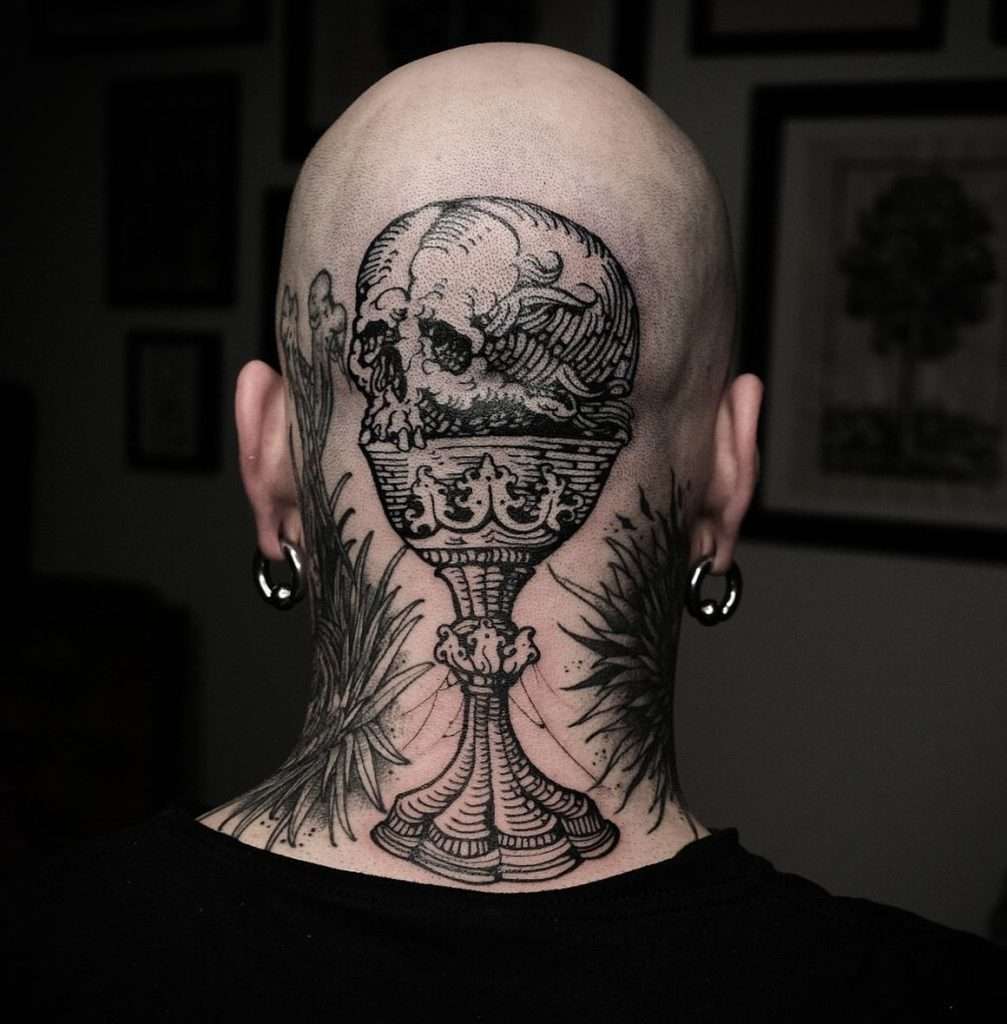
Scalp tattoos (or head tattoos) are normally done for one of two reasons: Either it’s micropigmentation to give the appearance of hair, or it’s body art and the tattoo is a particular design.
Micropigmentation isn’t meant to be recognizable as a tattoo unless you really inspect the scalp, whereas the latter is immediately recognized as a decorative tattoo.
This placement for body art should not be chosen lightly – it’s not the easiest place to tattoo and it’s a big commitment as it’s not easily hidden.
Let’s dive into scalp tattoos to answer the most frequently asked questions surrounding this tattoo choice, so you have the facts you need before booking your tattoo appointment.
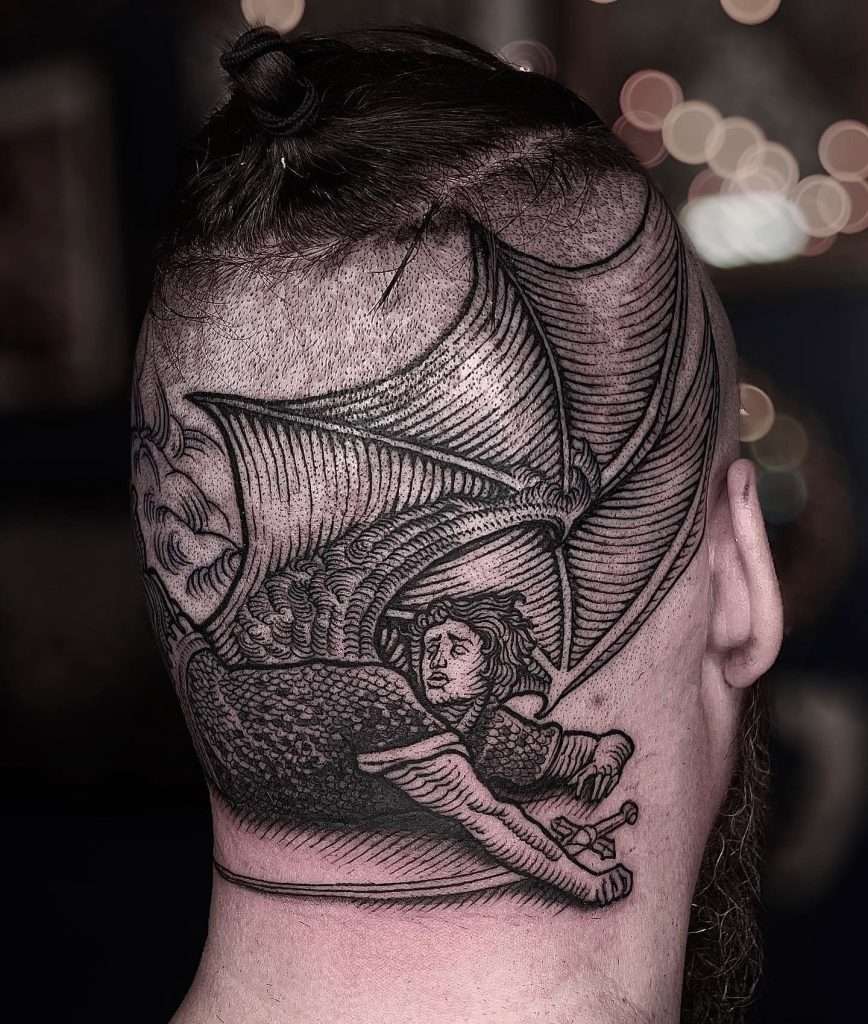
Is It Safe To Tattoo Your Scalp?
Getting any type of tattoo is a risk. The process of tattooing involves needles opening your skin multiple times to place ink in the dermis layer. Essentially, you’re getting a rather pretty wound.
That being said, the skull is a rather tricky place compared to others. This is because the skin in this area is thin and tends to bleed a lot during the tattoo process.
So, it’s important to go to a professional tattoo artist for your head tattoo. A tattooist who is experienced with head tattoos will be able to handle the blood and tattoo the area with more success compared to an amateur.
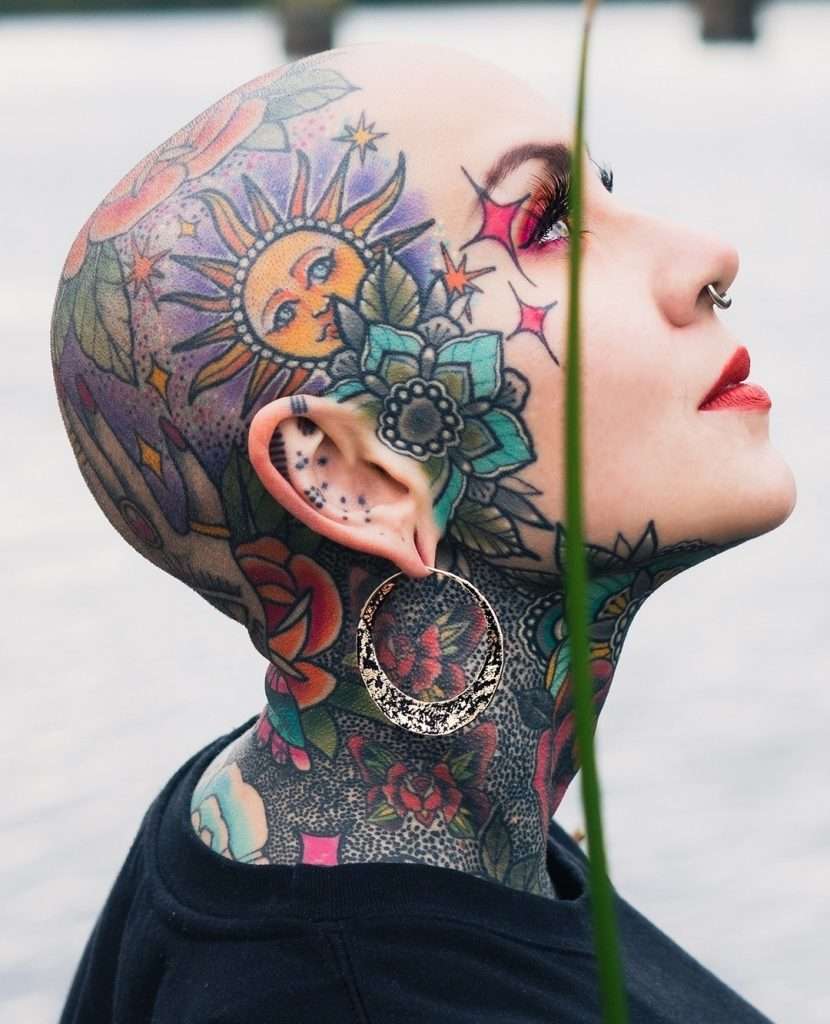
How Painful Are Scalp Tattoos?
Yes, a head tattoo is considered to be on the painful end of the spectrum. Tattify explains,
“Though pain thresholds vary from person to person, the skin on your head is generally thinner, is packed full of sensitive receptors, and features prominent bones, making for an uncomfortable tattooing experience, overall.”
Generally speaking, the more fat and muscle there is in the area, the more cushion there is for the tattoo needle, and the less pain is experienced.
There are ways to make the tattoo appointment less painful by taking a few preparation steps.
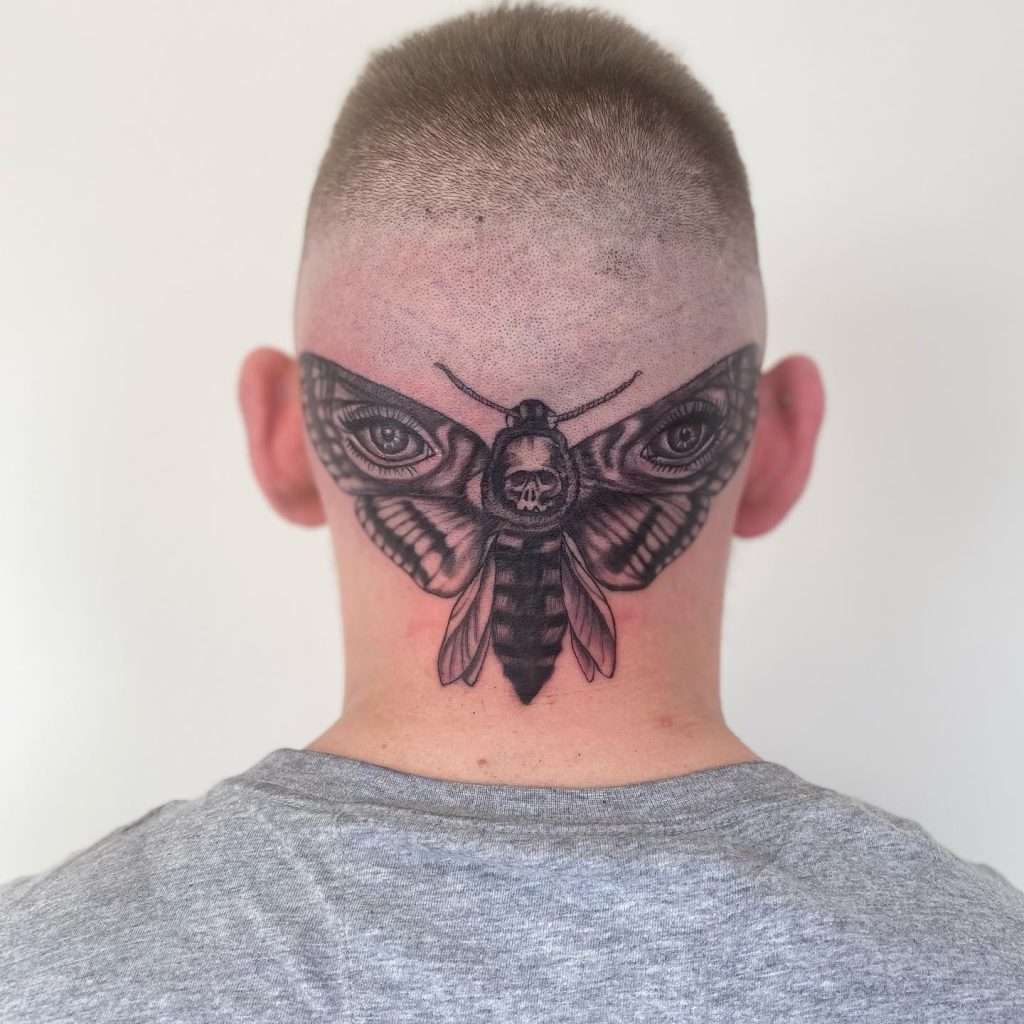
How To Prepare For A Head Tattoo
Before your head tattoo appointment, you’ve got to shave your head. But, it’s better to go to a professional hairdresser or barber than shave your head yourself.
When shaving your head yourself, it’s more likely you won’t be able to get as close a shave as a professional would, plus you’re more likely to nick your skin. A scalp with small cuts will be a lot harder to tattoo, and some tattoo artists won’t want to tattoo over newly damaged skin at all.
Preparing for a tattoo happens from the inside out, too. Hydrated skin is a way better canvas for tattoo artists, so make sure to up your water intake leading up to your appointment. Then, Tattoo artist, Lainey Bee, advised Female Tattooers that people should take extra vitamin C,
“Vitamin C has an antioxidant function in the body and is necessary for the formation of connective tissue, the absorption of iron, and the maintenance of resistance.”
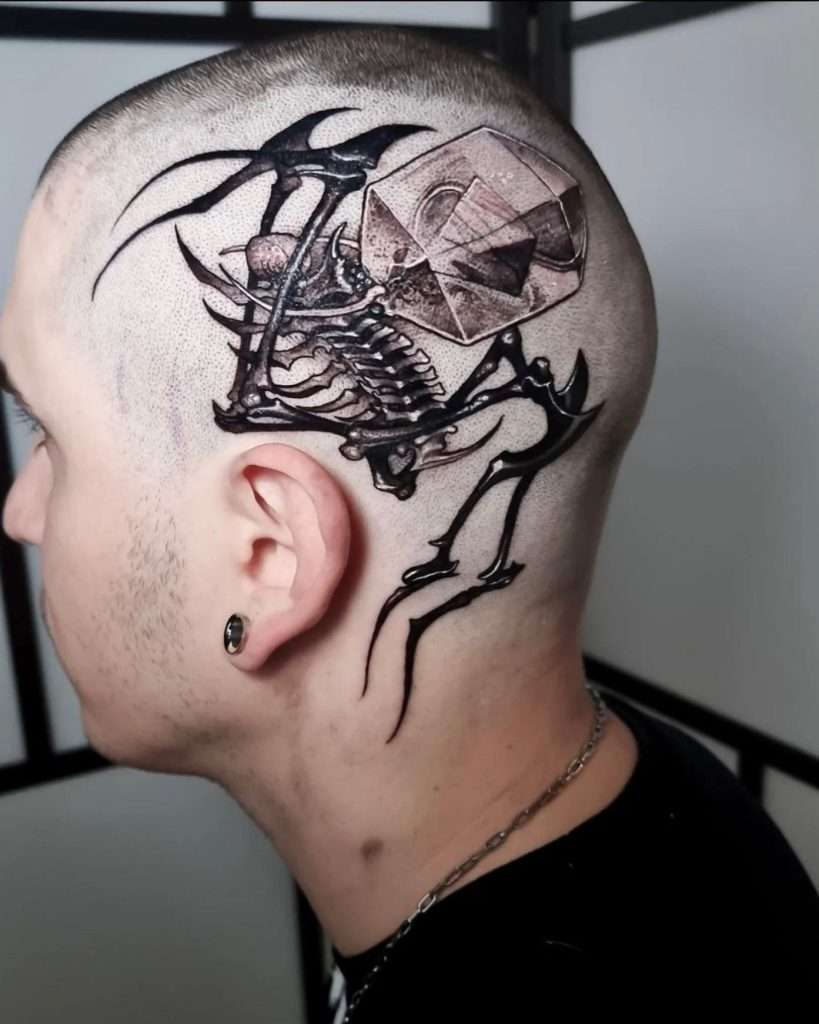
Next, clear your schedule the night before your tattoo appointment. It’s important to get plenty of sleep to prepare your body. When you’re well-rested you’re more able to handle the pain of the tattoo process.
Something else that will help you handle the tattoo process is enough calories. Before your appointment eat a full meal.
“It is important to eat a good meal the night before your session and a slow energy releasing breakfast – this way, once your body works through all its reserves it can feast on the additional calories from your previous meal(s). Without these additional calories you could become dizzy and worse case, pass out,”
Stories & Ink
Download your favorite songs or calming music, or have a podcast episode on standby. A head tattoo can be a jarring experience because of the vibrating of the tattoo needle being so close to the bone and to the ears.
Distracting yourself from the pain and the sound will be key. (Plus, use earbuds instead of headphones to not get in the way of the tattoo artist).
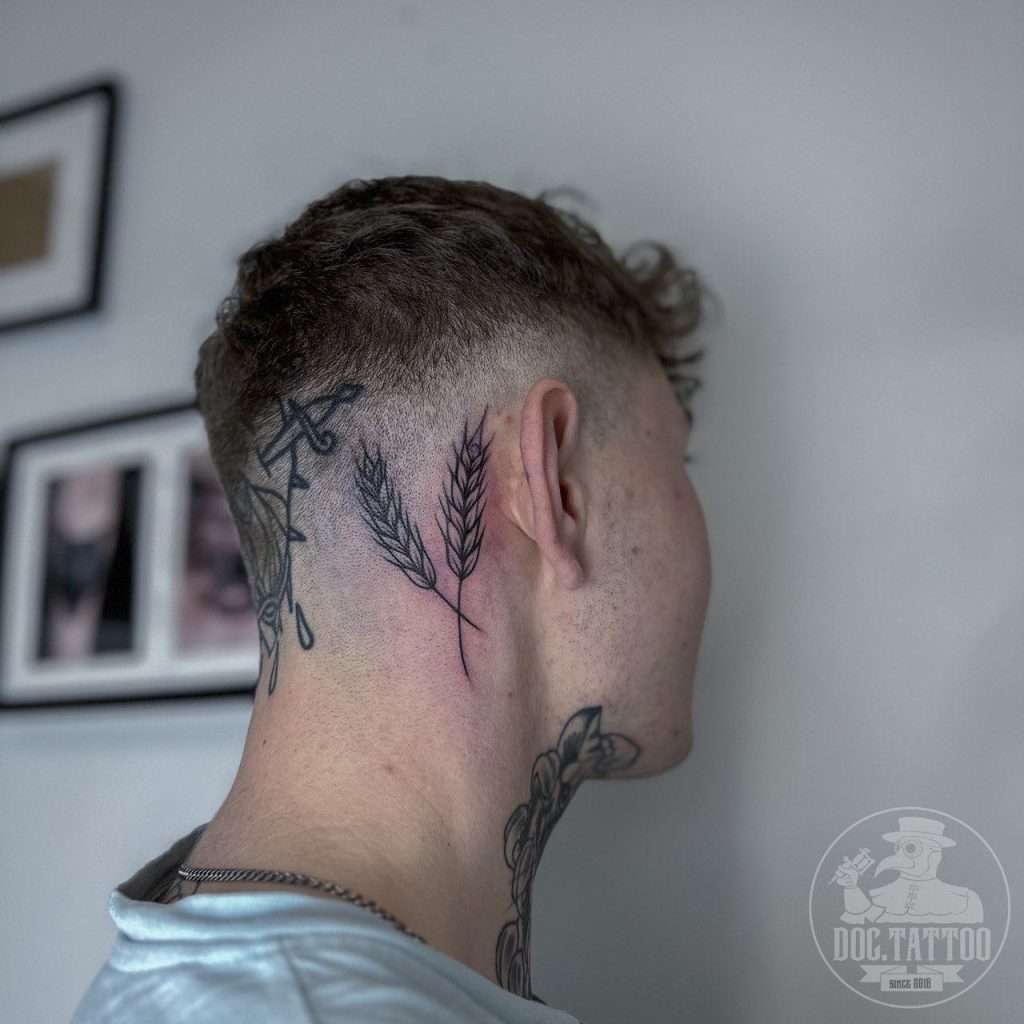
How Long Do Scalp Tattoos Last?
There are many factors that contribute to the longevity of a tattoo, one being the quality of ink that was used for your tattoo.
“Cheaper brands tend to use cheaper pigments in their inks and less of them. Whereas high-quality brands will use purer and more concentrated pigments, resulting in brighter and more vivid tattoos that last longer,”
Stories & Ink
So, make your tattoo appointment at a professional studio and actually go and check it out to make sure the tattoo artist has the correct licenses and that the place is clean and well lit.
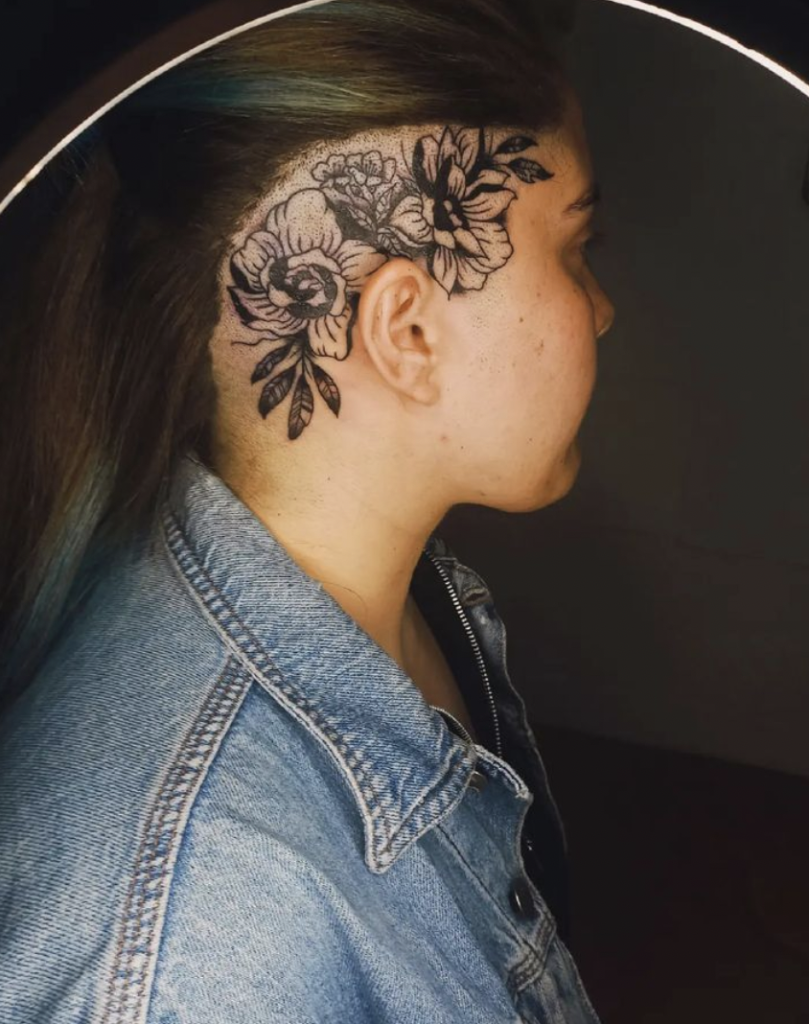
Then, areas that are exposed to the sun a lot tend to fade fast. This is because UVA and UVB rays can damage the ink. Most likely your head tattoo will be exposed, so, after your head tattoo has healed, make sure to always protect it with SPF.
When it comes to shampoo, opt for brands with fewer chemicals and hydrating formulas to help moisturize your scalp without stripping the skin.
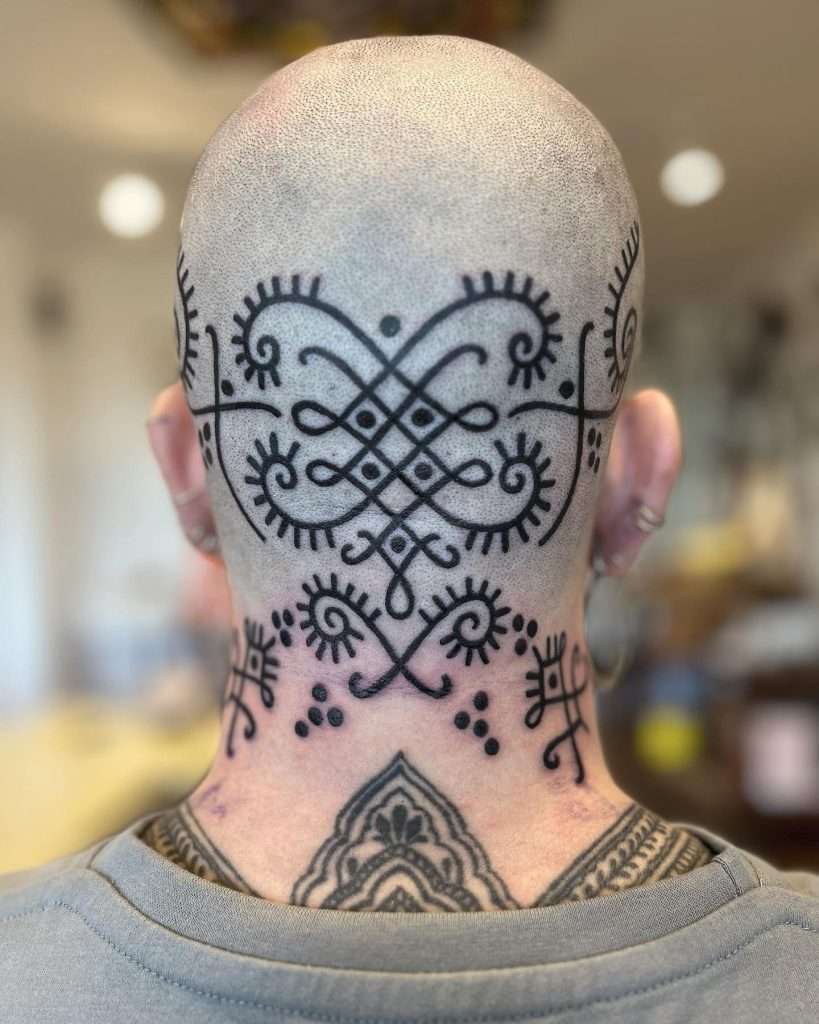
Does Hair Grow Over A Scalp Tattoo?
Yes, tattoo ink doesn’t inhibit hair growth, so your hair will still grow over your tattoo. So, if you want to keep your scalp tattoo on display, you’ll need to shave your head regularly.
“Unfortunately, if you go for it too soon, shaving will be about as rough on your tattoo as a weed whacker. This is because the wound is still fresh, and if you have any scabbing or raised areas, you run the risk of damaging the art by running a razor across it,”
Byrdie
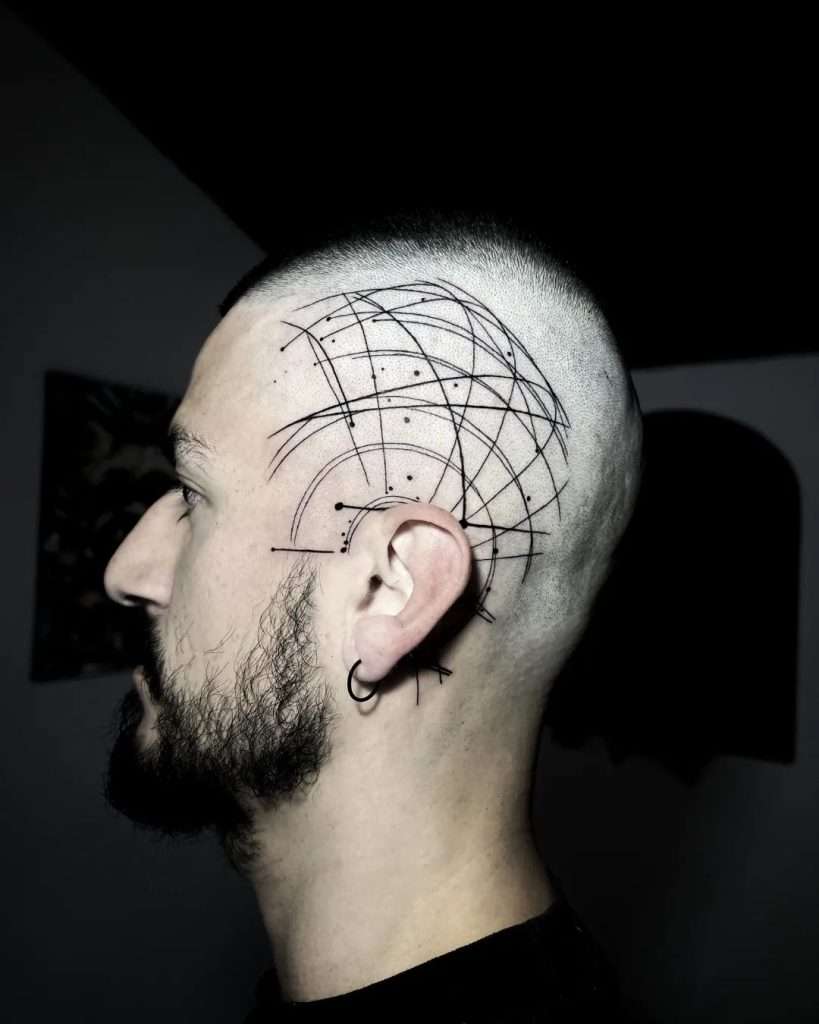
How Long Does A Scalp Tattoo Take To Heal?
A tattoo usually takes around two to four weeks to heal. During this time it’s essential to follow your tattooist’s aftercare instructions. Wash your tattoo with fragrance-free soap (with clean hands), pat dry with a paper towel (rubbing the area with a towel can damage the tattoo), and moisturize the area.
Try this simple test to make sure your head tattoo has healed completely: Close your eyes and run your fingertips around your tattoo.
If the tattoo does not feel the same as your untattooed skin around the area, then your tattoo isn’t 100% healed. Any bumps, raised areas, or hard scabs mean that your tattoo hasn’t finished healing.
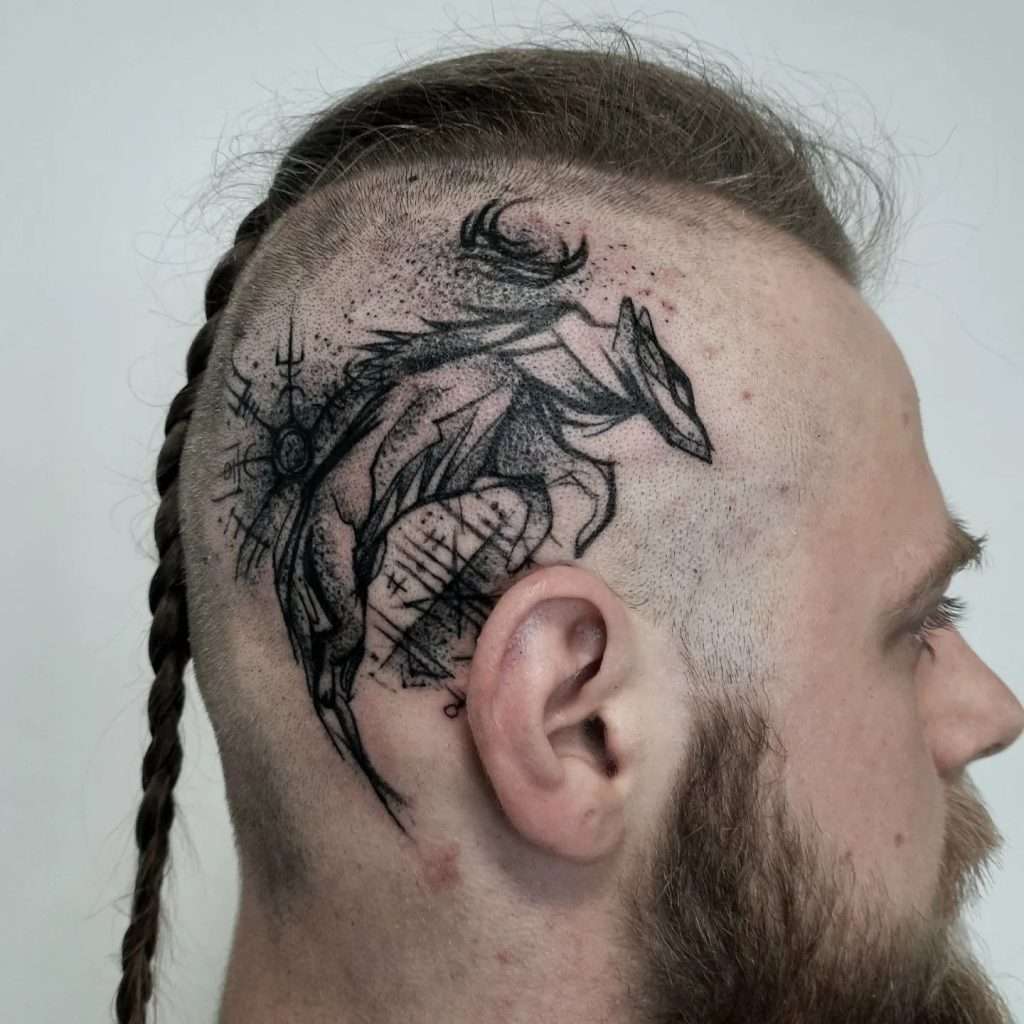
A head tattoo requires careful consideration and preparation. Tattooing the scalp can be more painful than other areas of the body, and the healing process can be more difficult due to the sensitivity of the skin.
However, with the help of a skilled and experienced tattoo artist and proper aftercare, a head tattoo can be a safe and unique way to create a lasting and meaningful work of art. If you’re considering a head tattoo, do your research and don’t hesitate to ask your tattoo artist questions.

